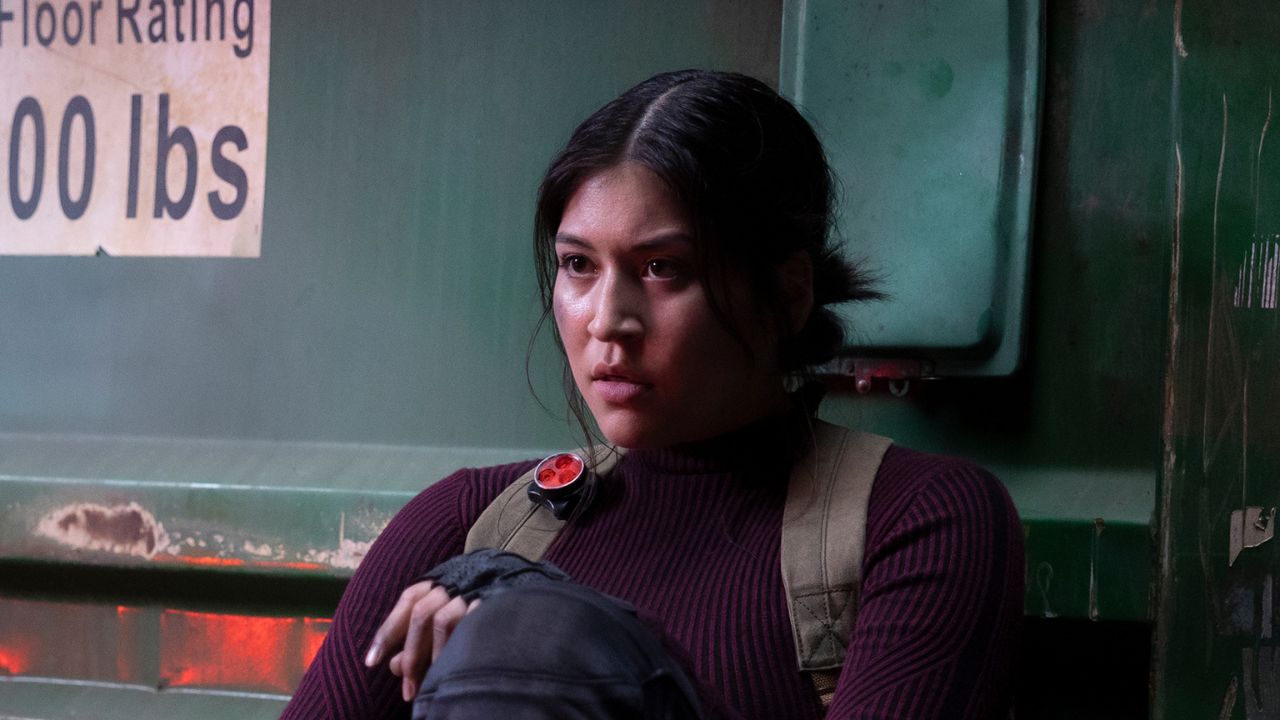Marvel Studios’ Echo is set after the events of 2021’s Hawkeye, in which Maya Lopez (Alaqua Cox) exacted her revenge on Kingpin (Vincent D’Onofrio), thereby putting herself in grave danger. That climactic conflict is revisited in Echo, a self-contained five-episode series that follows Maya’s pursuit of payback and power.
Before filming began at Trilith Studios in Fayetteville, Ga., in April 2022, executive producer Sydney Freeland—who directs the series’ first two and final two episodes, with Catriona McKenzie directing the third—spent more than a year developing Maya’s story. “By far, this is the biggest project I’ve ever done,” Freeland says. “But I soon realized the process is the process—whether it’s a short film, an indie feature, or a studio-level project.”
It was important to Freeland and executive producers Kevin Feige, Stephen Broussard, Louis D’Esposito, Brad Winderbaum, Victoria Alonso, Richie Palmer, Marion Dayre, and Jason Gavin (Blackfeet) that Echo depicted the Indigenous characters with care. “Authenticity and representation are extremely important,” says Freeland (Navajo). “It’s just who I am. I don’t try to be representation; I am representation. So, when I came on board, the first thing that I wanted to do was engage the Choctaw Nation. When we traveled to Oklahoma to present the project to them, we basically asked them two things: one, for permission, and two, for a dialogue. And they were great collaborators, even now.”

To further inspire the crew during the preproduction phase, Freeland and the crew were invited to attend a powwow with members of Choctaw Nation. “I can explain to you what a powwow is until I’m blue in the face, but for you to see it in in real life is something else entirely,” Freeland explains. “I wanted my production designer to see it through his eyes. I wanted my cinematographer to see through her eyes. I want my A.D. [assistant director] to see it through his eyes. I wanted that for the costume designers, the hairstylists, the makeup artists—everyone. I wanted them to absorb all of that internally and then put it into their various areas of expertise to hopefully ground and create a more authentic story.”
Such experiences helped filmmakers better depict communities that have often been misrepresented or underrepresented onscreen. Likewise, the cast—which includes Chaske Spencer as Uncle Henry, Tantoo Cardinal as Chula, Devery Jacobs as Bonnie, Zahn McClarnon as William Lopez, Cody Lightning as Cousin Biscuits, and Graham Greene as Skully—were appreciative of such efforts. Cox, born and raised in the Menominee Indian Reservation in Wisconsin, is part Mohican—and, as a deaf and single amputee, she was excited to tell more of Maya’s story in an authentic, respectful way. She also wanted to tap into a side of Maya that had not been previously explored in Hawkeye. “I was able to connect with her rage and her sadness because she grew up with a lot of trauma in her life,” she says of playing Maya, a burgeoning antihero. “Kingpin raised her to be a fighter, and she was involved in crimes and secretive operations. I also had a lot of trauma in my life as a child. I went through a lot of surgeries, unfortunately. [The difference is that] I grew up with a very loving, very supportive family, in a great home—but Maya, obviously, did not.”

In addition to accurately portraying Indigenous culture, it was important to “have some basic level of communication and understanding of American Sign Language (ASL),” Freeland says. Filmmakers employed a variety of strategies to represent Maya and ensure ideal communication between Cox, crew members, and the cast; consulting producer and ASL master Doug Ridloff worked with the Echo production team before cameras rolled. “Week one, we all started taking ASL classes, and some really great things came out of it,” Freeland recalls. “It actually ended up dictating our entire visual style. The hands are the text, and the face is the subtext. You need to see those two things together to understand what a person’s feeling. That’s a positive consequence that came from all of our prep work.”
Echo is the first series under the Marvel Spotlight banner, which brings more grounded, character-driven stories to the screen and is rooted in Marvel Comics’ 85-year publishing history. Under the new banner, Echo can focus on street-level stakes over larger MCU continuity—i.e., viewers don’t need to watch other Marvel series to understand the plot. “Echo was always about leaning into authenticity to tell a more human story,” Freeland says. “It’s an exciting place to be, because we’re not beholden to the fate of the universe, and we’re not dealing these huge, cosmic consequences. We get to focus on a group of characters and delve into that specificity within the MCU. But it’s important to establish that Maya is a part of the MCU, and hopefully we get to see more stories at a street-level.”

Going from a supporting role in Hawkeye to a leading role in Echo was a major transition, Cox admits—but she’s grateful for the opportunity. “On Echo, I was working six days a week sometimes. It was exhausting, and I wasn’t used to that,” she says. “It’s very funny: I hated coffee during Hawkeye, but when I joined Echo, I learned to love coffee! I drink it every day now. The filming schedule was the biggest difference from a supporting role to a lead role.”
Cox especially enjoyed collaborating with Freeland, who gave her the liberty to experiment and make the character her own. “We would shoot a scene very specifically at first, but after we did that, she would allow me to do whatever I want,” Cox says. “I liked that she gave me the freedom to be more open and play her differently than I otherwise would’ve.”

